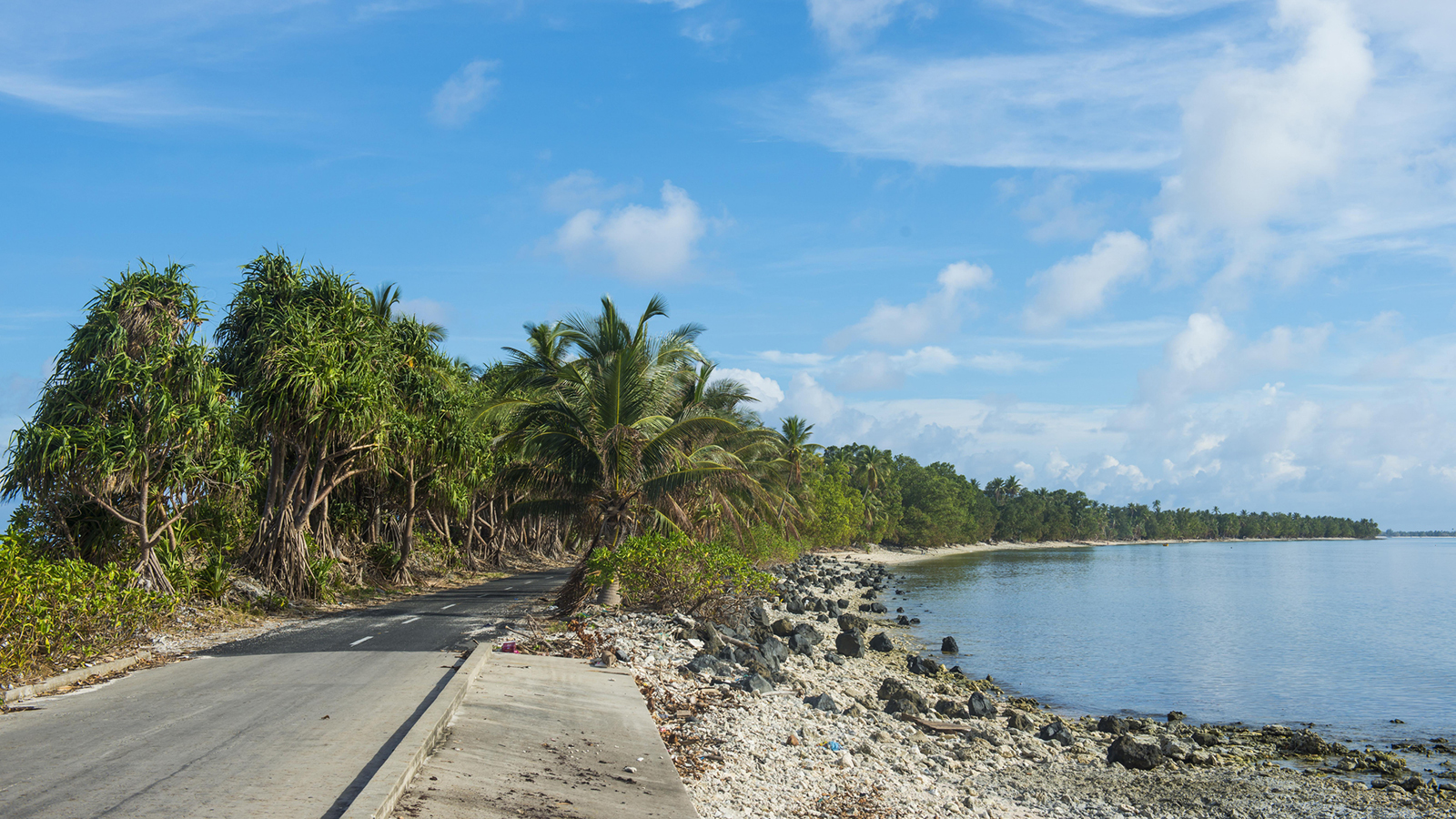Science
Tuvalu: The World’s Least-Visited Country Awaits Discovery

Tuvalu, a remote island nation in the Pacific Ocean, has earned the title of the world’s least-visited country, attracting only 40 tourists in 2021. This tiny nation, comprising nine islands and covering just 10 square miles (26 square kilometers), is situated between Australia and Hawaii, yet remains largely unknown to global travelers.
Despite its stunning natural beauty, including pristine beaches and vibrant coral reefs, Tuvalu’s appeal is overshadowed by its remote location and limited infrastructure. The main island, Funafuti, hosts the only international airport, with flights primarily from Fiji Airways. With only a few flights each week, reaching Tuvalu proves difficult for potential visitors.
Climate Change and Tourism Challenges
Tuvalu’s significance extends beyond its size; it plays a critical role in discussions surrounding climate change. With an average elevation of just 6.5 feet (2 meters) above sea level, Tuvalu is among the nations most vulnerable to rising sea levels and environmental changes. While there is a desire to increase tourist numbers to enhance the economy, the very existence of Tuvalu is under threat.
Tourism infrastructure remains basic, with no luxury accommodations and only one main road on Funafuti. The absence of tourism promotion further contributes to its low visitor numbers. Unlike popular destinations in the Caribbean or Southeast Asia, Tuvalu lacks a well-established tourism industry that draws international travelers.
A Unique Cultural Experience
The charm of Tuvalu lies not just in its landscapes but in its close-knit community. Visitors can experience a way of life that embraces tradition, including local cuisine featuring coconut, breadfruit, and seafood. For those interested in history, the islands still bear relics from World War II, such as American aircraft and bunkers from the Pacific theater.
While Tuvalu currently ranks as the least-visited country, it is not alone. Other nations such as the Marshall Islands, Solomon Islands, and the Federated States of Micronesia also see low tourist numbers due to factors like geographic isolation and political challenges. Notably, even North Korea, known for its strict tourism regulations, attracts more visitors annually than Tuvalu.
As Tuvalu grapples with the dual challenge of wanting to boost tourism while facing existential threats from climate change, there is hope that increased awareness and tourism could serve as a means of resilience. The country offers a rare glimpse into life untouched by modern tourism, characterized by tranquil lagoons and rich cultural traditions.
Ultimately, Tuvalu represents both the beauty and fragility of our world, standing as a poignant reminder of the impacts of climate change while waiting to share its unique story with those who venture to its shores.
-

 Science1 month ago
Science1 month agoNostradamus’ 2026 Predictions: Star Death and Dark Events Loom
-

 Technology2 months ago
Technology2 months agoOpenAI to Implement Age Verification for ChatGPT by December 2025
-

 Technology7 months ago
Technology7 months agoDiscover the Top 10 Calorie Counting Apps of 2025
-

 Health5 months ago
Health5 months agoBella Hadid Shares Health Update After Treatment for Lyme Disease
-

 Health5 months ago
Health5 months agoAnalysts Project Stronger Growth for Apple’s iPhone 17 Lineup
-

 Technology5 months ago
Technology5 months agoElectric Moto Influencer Surronster Arrested in Tijuana
-

 Education5 months ago
Education5 months agoHarvard Secures Court Victory Over Federal Funding Cuts
-

 Health5 months ago
Health5 months agoErin Bates Shares Recovery Update Following Sepsis Complications
-

 Technology6 months ago
Technology6 months agoDiscover How to Reverse Image Search Using ChatGPT Effortlessly
-

 Technology7 months ago
Technology7 months agoMeta Initiates $60B AI Data Center Expansion, Starting in Ohio
-

 Science4 months ago
Science4 months agoStarship V3 Set for 2026 Launch After Successful Final Test of Version 2
-

 Technology7 months ago
Technology7 months agoRecovering a Suspended TikTok Account: A Step-by-Step Guide





















